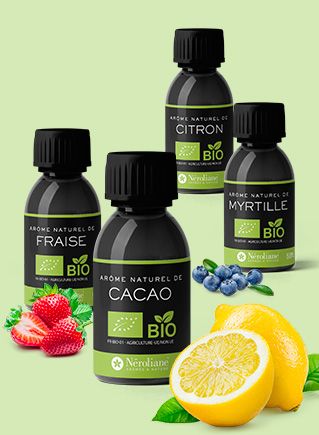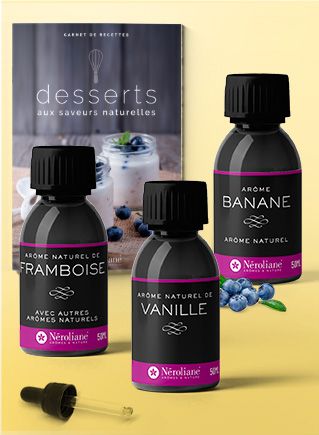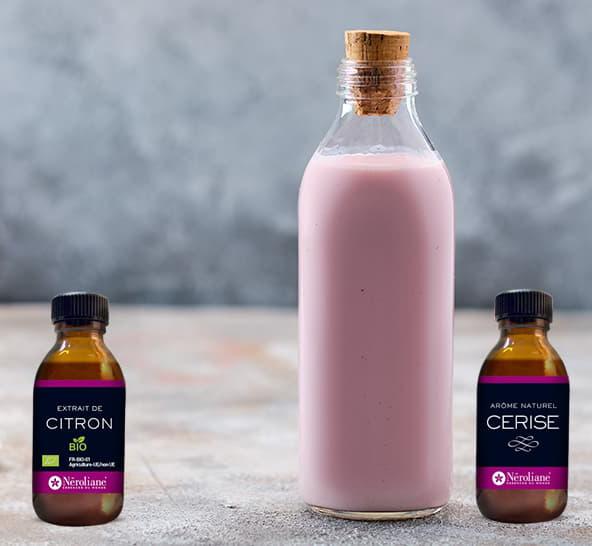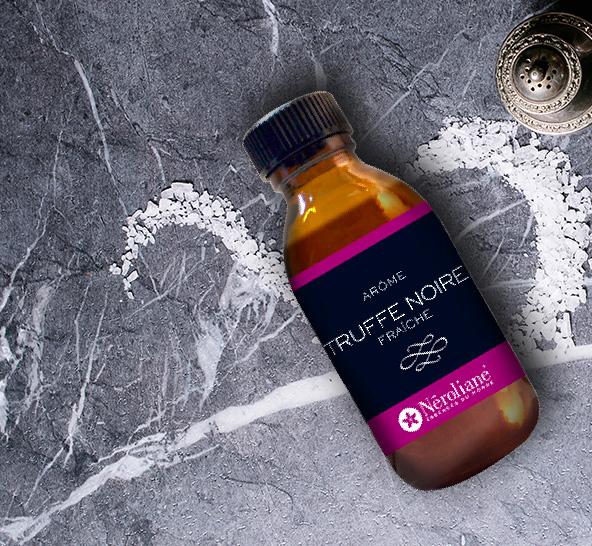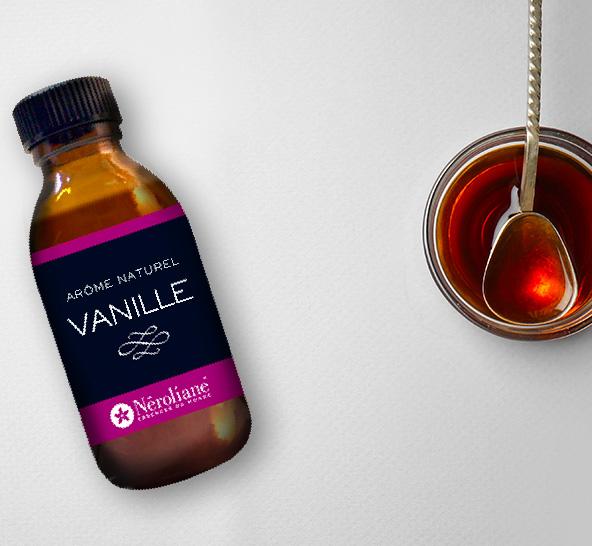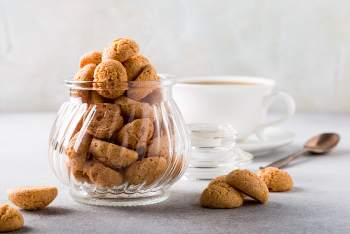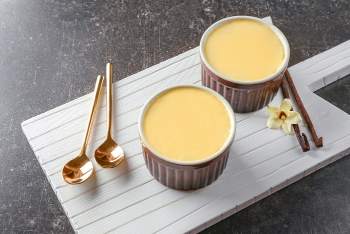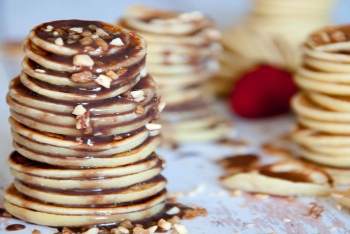Discover the latest natural organic flavours!
I discoverHow to best preserve natural flavours?
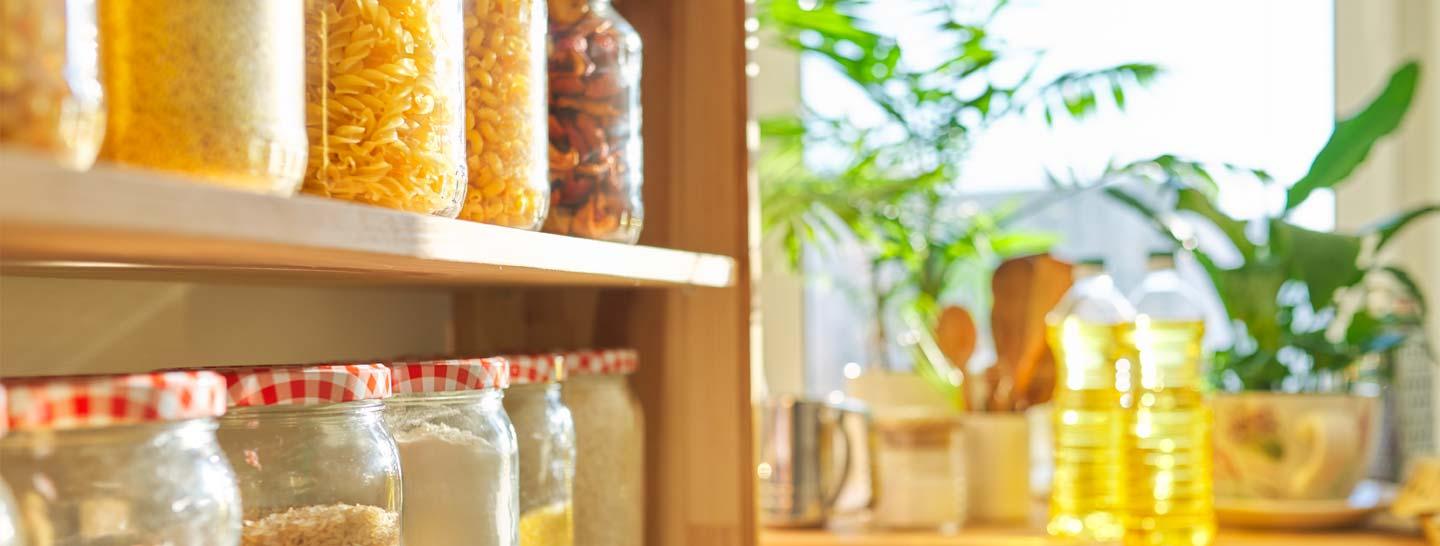
Are you a professional?
Access exclusive benefits by creating your pro account at Neroliane. Enjoy an immediate 15% discount on all your purchases!
Are you a professional?
Access exclusive benefits by creating your pro account at Neroliane. Enjoy an immediate 15% discount on all your purchases!
You have purchased natural flavourings to subtly flavour your food preparations, but you don't know how to store them? Follow our storage tips to preserve your bottles of natural flavourings and avoid any changes in their organoleptic qualities!
Like all ingredients in your fridge, cupboards or on your worktop, natural food flavourings need to be stored in a specific environment.
Cool and dark
Once opened, food flavourings should be stored in a cool, dark place. For example, you can store your bottles of natural flavourings in the door of the refrigerator. Be sure to close your bottles tightly to avoid microbial contamination and to preserve the quality of your flavouring. Before each use, remember to shake the bottle well to homogenise the preparation.
Choose the right amount for your needs
Natural flavourings are very economical products that can be stored for a long time. However, there is no point in buying industrial quantities if you are a hobbyist who only uses them occasionally: first of all, make sure you buy a reasonable quantity for your use. On the Nerolian website, for example, you can choose from different sizes, ranging from 50 ml to 1 litre, via 125 ml, 250 ml and 500 ml. So you don't have to waste any more!
Shelf life of food flavourings
All bottles of natural food flavourings are marked with a date, which corresponds to the MDD (formerly known as the DLUO), the Date of Minimum Durability. After this date, you can continue to use your natural flavourings, but their quality may be affected. However, this does not mean that your product has expired! The MDD, unlike the use-by date, is applied to products that are not very perishable, while products such as eggs, meat and fish cannot be consumed after the date on the packaging. After this date, the product may pose a risk to your health.
What is a natural flavouring?
According to EU legislation, natural flavours are ingredients of plant origin, produced by concentration, distillation, extraction, fermentation or roasting. They can be essential oils, floral waters and distillate flavours (such as rose or lavender), extracts or concentrates. You can find all kinds - and all qualities - online, in supermarkets and in some specialist shops. Always choose natural DE flavours - vanilla, coffee, strawberry, lemon... - which guarantee that your flavouring is composed of at least 95% of the molecules of the original raw material.






